Lynnzora
TPF Noob!
- Joined
- Jan 27, 2009
- Messages
- 200
- Reaction score
- 0
- Location
- Southern California
- Can others edit my Photos
- Photos OK to edit
Hello,
My name is Lynn. I'm new to this site and so far I believe it's wonderful! I've been wading through the threads trying to avoid reposting something that may have been discussed early... Couldn't find anything that answered my questions so here it goes...
I'm a professional photographer IN TRAINNING . In addition I'm a dancer and actress... I have a lot of acquaintances who look for head-shots, and modeling portfolios. Knowing this and my love for photography has motivated me to pursue it professionally.
I'm looking to learn to do magazine quality type photos. I'm currently training and meanwhile I'd like a camera that is capable.
EQUIPMENT:
Deciding between the Nikon D90 (12.3mp) and the Canon 50d (15.1mp) has been crazy for me because #1. You would think the one with the most mp would be the better camera. I was told that this isn't so with the 50d and that the resolution is poor... pictures come out more soft than sharp... What are your thoughts?
It has been emphasized that I'm investing in not only the camera body but the system because I'm going to invest into lenses. If I buy the D90 right now and invest in its lenses... Whenever I decide I'm good enough and I'm able to invest in lets say a Nikon Dx... then I can use the same lenses. That's what I've been told but is that true even though D90 isn't a full-frame camera and the Dx is? Or lets say going from the Cannon 50d to the Mk III
I've also been told that the camera really doesn't matter and that it's all in the lens. That I could get an old 8mp camera for like $300 and then invest in a $1000 lenses...
So to wrap it up... (Sorry for the looong post)
1. What would you guys personally get if you had to choose between the Nikon D90 and the Cannon 50d? Remember I'm looking to do portraits, headshots, and modeling portfolios....
2. For what I'm doing what lens should I invest in?
50mm, 85mm??? Then lenses that seem to be INCLUDED in the kits that I'm looking at are the
10-55, 70-300, 50mm prime.
If I had to invest in one additional lens what should it be? I would especially love to hear from a professional who does portraits, and people... What do you think about the kit lenses I listed? Are they enough?
Thanks in advance. You guys are great!
My name is Lynn. I'm new to this site and so far I believe it's wonderful! I've been wading through the threads trying to avoid reposting something that may have been discussed early... Couldn't find anything that answered my questions so here it goes...
I'm a professional photographer IN TRAINNING . In addition I'm a dancer and actress... I have a lot of acquaintances who look for head-shots, and modeling portfolios. Knowing this and my love for photography has motivated me to pursue it professionally.
I'm looking to learn to do magazine quality type photos. I'm currently training and meanwhile I'd like a camera that is capable.
EQUIPMENT:
Deciding between the Nikon D90 (12.3mp) and the Canon 50d (15.1mp) has been crazy for me because #1. You would think the one with the most mp would be the better camera. I was told that this isn't so with the 50d and that the resolution is poor... pictures come out more soft than sharp... What are your thoughts?
It has been emphasized that I'm investing in not only the camera body but the system because I'm going to invest into lenses. If I buy the D90 right now and invest in its lenses... Whenever I decide I'm good enough and I'm able to invest in lets say a Nikon Dx... then I can use the same lenses. That's what I've been told but is that true even though D90 isn't a full-frame camera and the Dx is? Or lets say going from the Cannon 50d to the Mk III
I've also been told that the camera really doesn't matter and that it's all in the lens. That I could get an old 8mp camera for like $300 and then invest in a $1000 lenses...
So to wrap it up... (Sorry for the looong post)
1. What would you guys personally get if you had to choose between the Nikon D90 and the Cannon 50d? Remember I'm looking to do portraits, headshots, and modeling portfolios....
2. For what I'm doing what lens should I invest in?
50mm, 85mm??? Then lenses that seem to be INCLUDED in the kits that I'm looking at are the
10-55, 70-300, 50mm prime.
If I had to invest in one additional lens what should it be? I would especially love to hear from a professional who does portraits, and people... What do you think about the kit lenses I listed? Are they enough?
Thanks in advance. You guys are great!



![[No title]](/data/xfmg/thumbnail/32/32178-010a47bfeb945bdafb02b0ee4888290c.jpg?1619735235)
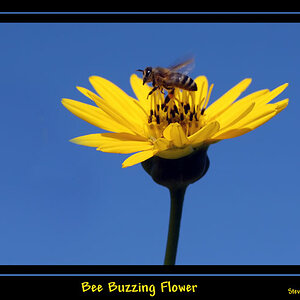
![[No title]](/data/xfmg/thumbnail/32/32005-d13a0bcc56327c42bd32dff4b0776658.jpg?1619735150)
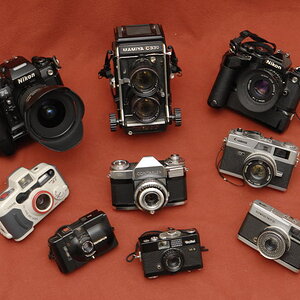
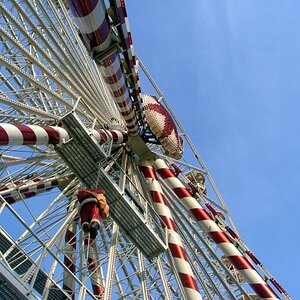
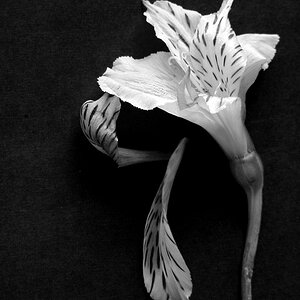
![[No title]](/data/xfmg/thumbnail/37/37113-886cb28b1e3fb197bdd00a9148269407.jpg?1619737882)
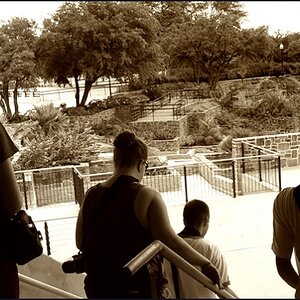
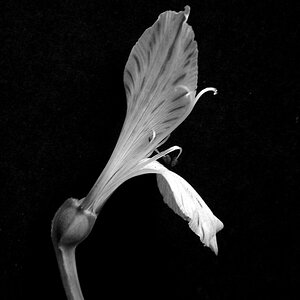
![[No title]](/data/xfmg/thumbnail/41/41902-e45a2db116295062060b22cde75818ed.jpg?1619739939)
![[No title]](/data/xfmg/thumbnail/32/32702-7344d6e6132276dd7bfc046084fea432.jpg?1619735604)
![[No title]](/data/xfmg/thumbnail/40/40286-86401b94de8b01bea8bb4ea154aaea0a.jpg?1619739408)